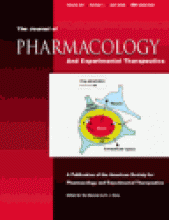Abstract
Oxidative and/or bioenergetic stress is thought to contribute to the mechanism of neurotoxicity of amphetamine derivatives, e.g., 3,4-methylenedioxymethamphetamine (MDMA). In the present study, the effect of MDMA on brain energy regulation was investigated by examining the effect of MDMA on brain glycogen and glucose. A single injection of MDMA (10–40 mg/kg, s.c.) produced a dose-dependent decrease (40%) in brain glycogen, which persisted for at least 1 h. MDMA (10 and 40 mg/kg, s.c.) also produced a significant and sustained increase in the extracellular concentration of glucose in the striatum. Subjecting rats to a cool ambient temperature of 17°C significantly attenuated MDMA-induced hyperthermia and glycogenolysis. MDMA-induced glycogenolysis also was prevented by treatment of rats with the 5-hydroxytryptamine2 (5-HT2) antagonists 6-methyl-1-(1-methylethyl)-ergoline-8β-carboxylic acid 2-hydroxy-1 methylprophyl ester maleate (LY-53,857; 3 mg/kg i.p.), desipramine (10 mg/kg i.p.), and iprindole (10 mg/kg i.p.). LY-53,857 also attenuated the MDMA-induced increase in the extracellular concentration of glucose as well as MDMA-induced hyperthermia. Amphetamine analogs (e.g., methamphetamine and parachloroamphetamine) that produce hyperthermia also produced glycogenolysis, whereas fenfluramine, which does not produce hyperthermia, did not alter brain glycogen content. These results support the conclusion that MDMA induces glycogenolysis and that the process involves 5-HT2receptor activation. These results are supportive of the view that MDMA promotes energy dysregulation and that hyperthermia may play an important role in MDMA-induced alterations in cellular energetics.
Footnotes
-
This work was supported by U.S. Public Health Service Grant DA07427.
- Abbreviations:
- MDMA
- 3,4-methylenedioxymethamphetamine
- PCA
- parachloroamphetamine
- ANOVA
- analysis of variance
- 5-HT
- 5-hydroxytryptamine
- LY-53,857
- 6-methyl-1-(1-methylethyl)-ergoline-8β-carboxylic acid 2-hydroxy-1 methylprophyl ester maleate
- Received September 28, 2001.
- Accepted December 19, 2001.
- The American Society for Pharmacology and Experimental Therapeutics
JPET articles become freely available 12 months after publication, and remain freely available for 5 years.Non-open access articles that fall outside this five year window are available only to institutional subscribers and current ASPET members, or through the article purchase feature at the bottom of the page.
|






